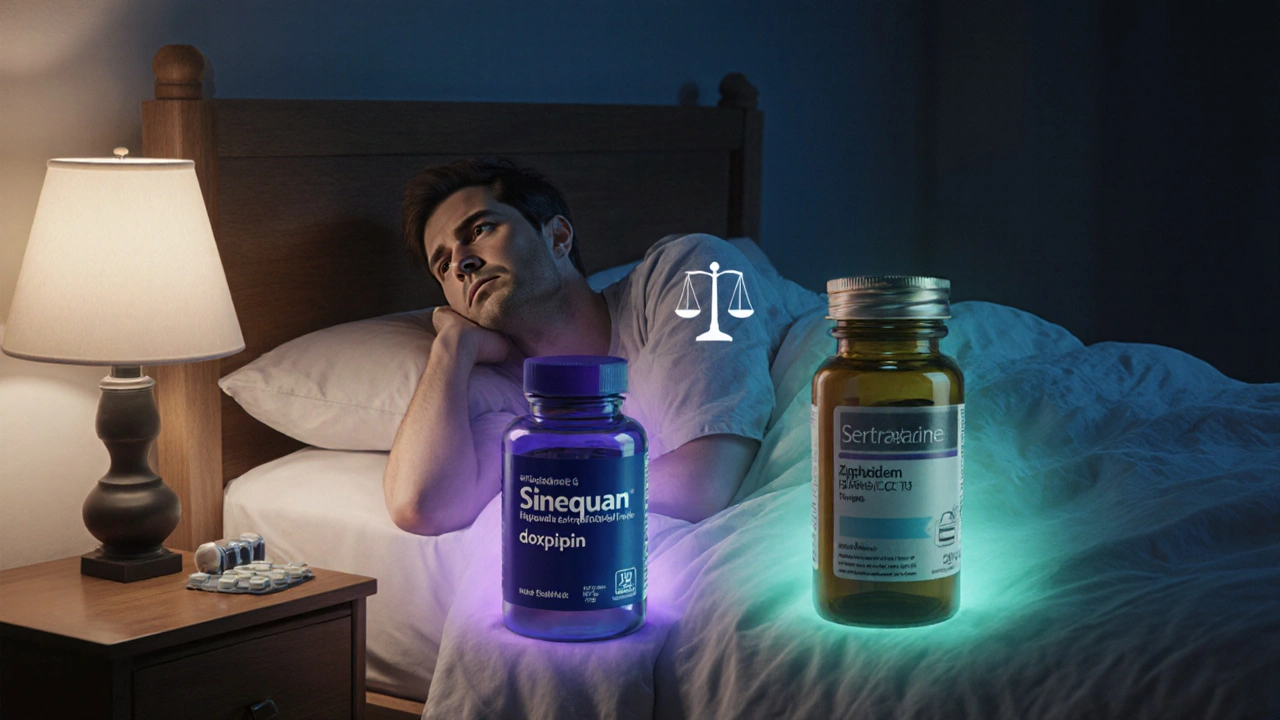If you’re tired of popping pills every night, you’re not alone. Many people look for ways to sleep better without relying on prescription meds. The good news is that there are plenty of safe, easy‑to‑try options that can help you drift off naturally. Below you’ll find the most common over‑the‑counter choices and a few lifestyle tricks that often do the trick.
Melatonin is a hormone your body makes to tell you when it’s bedtime. A low dose (0.5‑3 mg) taken about 30 minutes before lights out can reset your internal clock, especially if you travel across time zones or work night shifts. It’s not a sedative, so you won’t feel groggy the next day.
Valerian root has been used for centuries as a calming herb. A capsule or tea taken an hour before bed may reduce the time it takes to fall asleep. Some people notice a mild taste, but the effect is subtle and usually safe.
Magnesium supports muscle relaxation and nerve function. A nightly dose of 200‑400 mg, preferably in the form of magnesium glycinate, can help restless legs and improve sleep quality.
CBD oil (cannabidiol) is gaining popularity for its anxiety‑reducing properties. A few drops under the tongue before bedtime can calm a racing mind, but make sure you choose a product with third‑party testing.
Herbal teas like chamomile, lemon balm, or lavender are gentle and caffeine‑free. Sipping a warm cup 20 minutes before sleep signals your body that it’s time to wind down.
Changing a few habits often outweighs any supplement. Start with a consistent sleep schedule: go to bed and wake up at the same time every day, even on weekends. Your body loves routine.
Turn off screens at least an hour before bed. The blue light from phones and laptops tricks your brain into thinking it’s daytime, which suppresses melatonin. Try reading a paperback or listening to a calm podcast instead.
Keep your bedroom cool, dark, and quiet. A temperature around 65°F (18‑19°C) promotes deeper sleep, while blackout curtains block disruptive light. If noise is an issue, consider a white‑noise machine or a fan.
Physical activity during the day helps you fall asleep faster at night. Even a 20‑minute walk after dinner can make a big difference. Just avoid vigorous exercise within two hours of bedtime.
Finally, practice a short relaxation routine before you lie down. Deep breathing, progressive muscle relaxation, or a five‑minute meditation can quiet a busy mind. Consistency is key—your brain will learn to associate these actions with sleep.
Combining a gentle supplement with solid sleep hygiene often yields the best results. Experiment with one change at a time, track how you feel, and adjust as needed. You don’t have to rely on prescription sleep aids when simple, natural alternatives are right at your fingertips.

Compare Sinequan (doxepin) with other sleep‑aid and antidepressant options. Learn mechanisms, dosing, side‑effects, and how to pick the best alternative for your needs.
read more